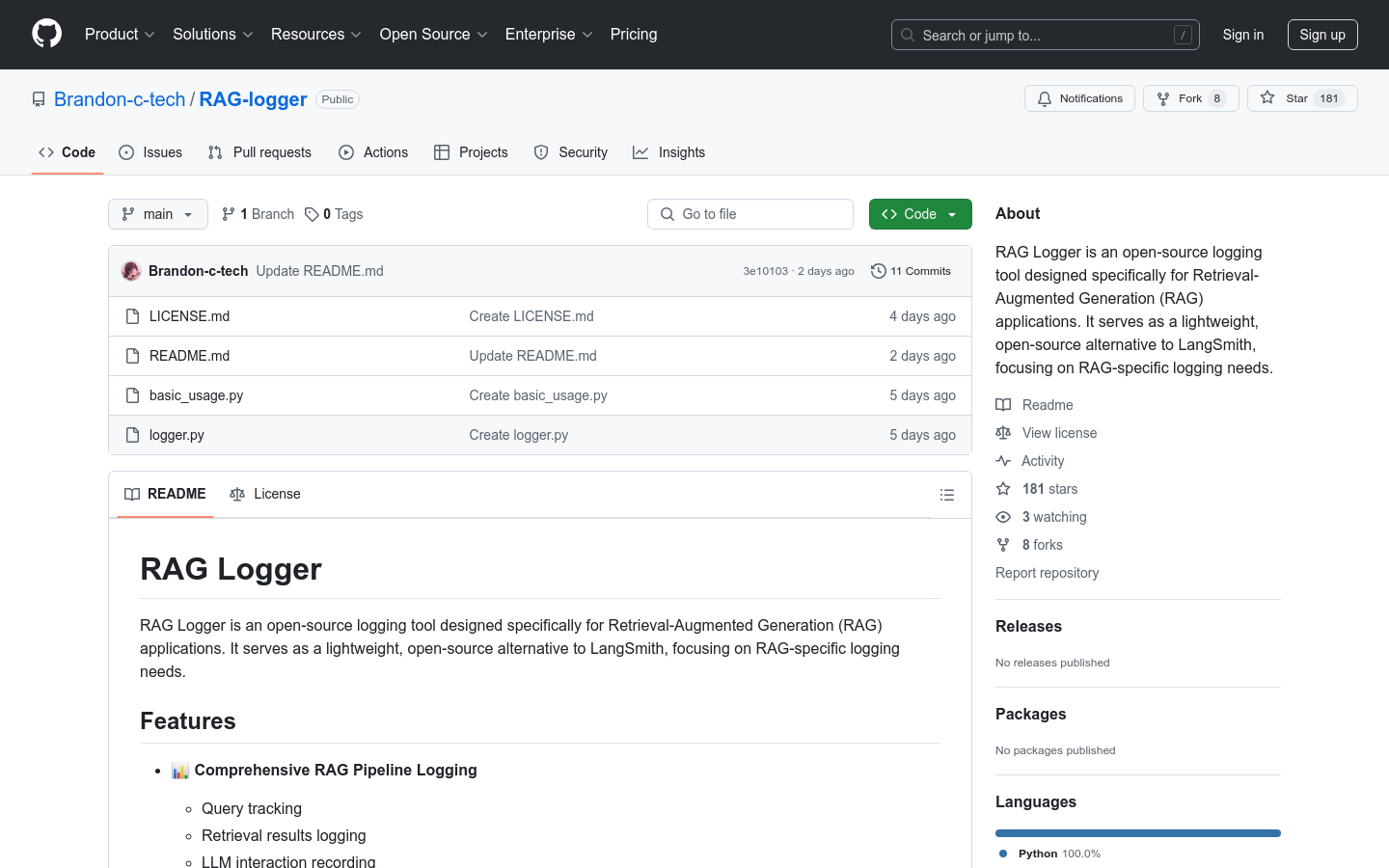

RAG Logger
Overview :
RAG-logger is an open-source logging tool designed for Retrieval-Augmented Generation (RAG) applications. It is a lightweight open-source alternative tailored to the specific logging needs of RAG, focusing on providing comprehensive logging features such as query tracking, retrieval result logging, LLM interaction logging, and step-by-step performance monitoring. It utilizes a JSON-based log format, supports daily log organization, automatic file management, and metadata enrichment. With its open-source, lightweight, and RAG-focused features, RAG-logger offers developers an effective tool for monitoring and analyzing the performance of RAG applications.
Target Users :
The target audience for RAG-logger includes developers and data scientists who develop and maintain RAG applications. Its lightweight and open-source characteristics make it particularly suitable for teams that require high customization and cost-effectiveness. Additionally, RAG-logger is also an ideal choice for researchers and educational institutions that need to monitor and analyze the performance of RAG applications.
Use Cases
Developers use RAG-logger to track and analyze the query processing flow of their RAG applications.
Data scientists utilize RAG-logger to document and analyze the retrieval and generation steps of models to optimize model performance.
Educational institutions employ RAG-logger as a teaching tool to showcase the inner workings of RAG technology to students.
Features
?? Comprehensive RAG process logging: Including query tracking, retrieval result logging, and LLM interaction logging.
?? Structured storage: JSON-based log format, supporting daily log organization and automatic file management.
?? Roadmap planning: Including core enhancements, version control and migration, web interface, and advanced features.
Quick start: Provides simple code examples for easy integration and usage.
Log structure: Detailed records of queries, retrieval results, LLM input and output, etc.
Error tracking: Monitor errors and warnings during the logging process.
How to Use
1. Import the RAGLogger module
2. Initialize the RAGLogger object and set the log directory
3. Use RAGLogger to log queries
4. Start logging retrieval steps and capture retrieval results
5. Log the input and output of the LLM
6. Save the logs
Featured AI Tools

Pseudoeditor
PseudoEditor is a free online pseudocode editor. It features syntax highlighting and auto-completion, making it easier for you to write pseudocode. You can also use our pseudocode compiler feature to test your code. No download is required, start using it immediately.
Development & Tools
3.8M

Coze
Coze is a next-generation AI chatbot building platform that enables the rapid creation, debugging, and optimization of AI chatbot applications. Users can quickly build bots without writing code and deploy them across multiple platforms. Coze also offers a rich set of plugins that can extend the capabilities of bots, allowing them to interact with data, turn ideas into bot skills, equip bots with long-term memory, and enable bots to initiate conversations.
Development & Tools
3.8M

















